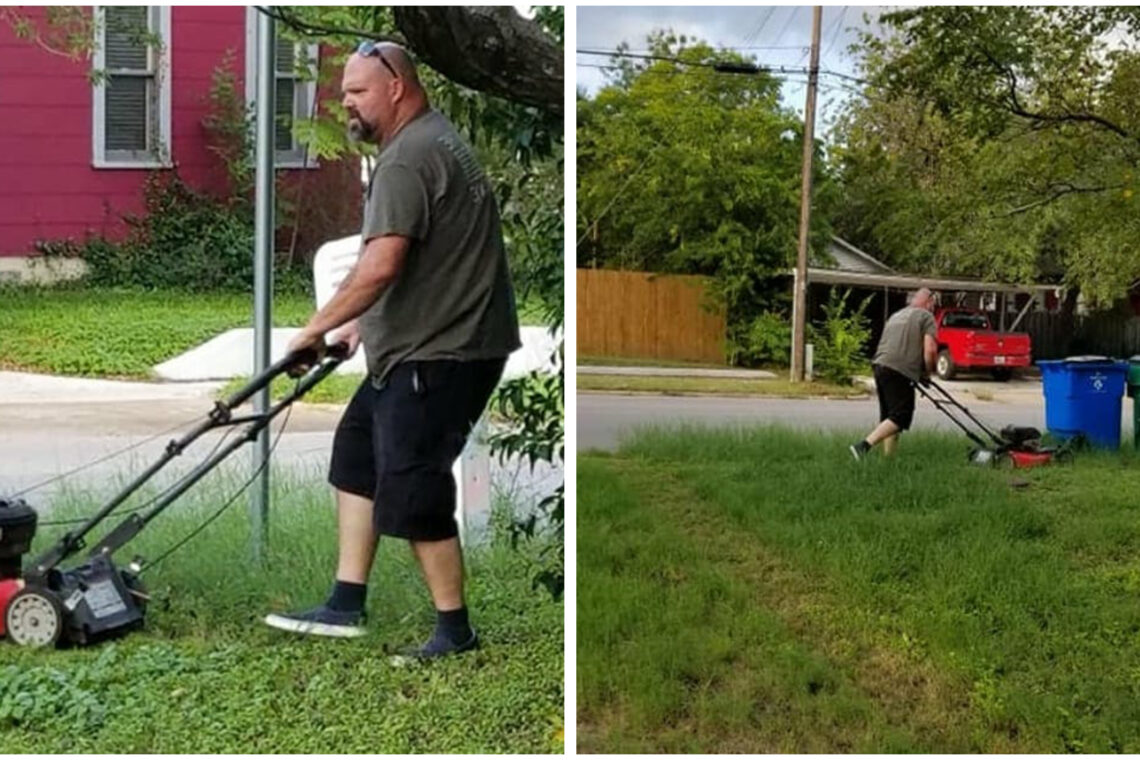
In today’s world, it’s all too common to hear stories of families being torn apart by anger and bitterness following a divorce. The emotional toll it takes on everyone involved is undeniable, particularly on the children who often bear the brunt of the fallout. However, it’s essential for parents to remember that they have a responsibility to their children, whether or not they choose to remain together. The way parents conduct themselves after a divorce can have a significant impact on the well-being of their children, teaching them vital lessons about respect, empathy, and the importance of maintaining healthy relationships.
A prime example of this is the story of 32-year-old Codie LaChelle McPhate, whose parents divorced when she was just four years old. Now, both her mother and father have remarried, and Codie has learned that even after a divorce, it is possible for parents to maintain a healthy, respectful relationship for the sake of their children. When her biological father visited her in Austin, Texas, something unexpected happened that left her feeling both surprised and moved.
In a time where divorce rates are on the rise, many parents are starting to recognize the importance of continuing to set a positive example for their children, despite the challenges that divorce can bring. Experts suggest that co-parenting—working together as a team even after separation—can be incredibly beneficial for children. It not only helps them feel loved and supported but also reinforces the idea that their emotions and well-being matter. Positive co-parenting can also have a lasting impact on a child’s behavior, boosting their self-esteem and confidence, ultimately helping them develop into well-rounded individuals.
Codie’s father certainly seems to embrace this mindset. After his divorce from Codie’s mother, he and his ex-wife made a conscious decision to remain amicable for the sake of their children. Codie recalls a moment when she looked out her window one day to see something truly unexpected—her father mowing her mother’s lawn. The gesture was simple, yet profound. Codie, who was at her mother’s house at the time, couldn’t help but grab her phone and take a picture of the moment. Little did she know, this simple act of kindness would go on to make a huge impact.
She shared the photo on her social media, where it quickly gained attention. In her post, she explained the significance of the moment. Her father had come all the way from out of town to visit her in Texas, and despite being on vacation, he took the time to mow her mother’s lawn. Codie’s mother had bad knees and couldn’t manage the task herself, and her stepfather, who worked away from home, was unable to help. When Codie’s younger siblings questioned why their father was mowing their mother’s lawn, she explained that it was simply because her dad wanted to help out. He recognized that her mother needed assistance and didn’t hesitate to step in.
This act of kindness wasn’t about seeking recognition or praise, Codie explained. Her father humbly shared that when he and her mother were going through their divorce, they made a mutual decision to treat each other with respect and compassion, regardless of how their marriage had ended. They understood that, at one time, they had loved each other deeply, and that love deserved to be honored, even if it was no longer the foundation of their relationship. By setting this example, they not only showed each other respect but also taught their children the importance of kindness, generosity, and understanding.
Codie reflected on how lucky she was to have four parents—her biological mother and father, as well as her stepmother and stepfather—who all respected one another and understood the importance of being good, kind people. She was particularly moved by the fact that her father, despite not living in the same city as her mother, had taken the time during his vacation to help out without expecting anything in return. It was a powerful reminder that, even after a divorce, parents can continue to support one another and work together for the sake of their children’s happiness and well-being.
Codie’s father, in his humility, stressed that his actions were not about seeking validation but were simply an expression of his desire to show kindness whenever possible. He explained that the decision to treat each other with respect was one that both he and Codie’s mother had made years ago, and it was a choice that had remained central to their co-parenting journey. They understood that their children were watching and learning from their example, and that how they interacted with one another would leave a lasting impression.
For Codie, this moment was a reminder of how fortunate she was to have such loving, considerate parents. She recognized that her parents’ commitment to showing kindness and respect, despite the challenges they had faced, had shaped her own understanding of family and relationships. She knew that her parents would always support each other and would do whatever it took to ensure that their children grew up in a positive, nurturing environment.
Codie’s story is a beautiful testament to the power of compassion, maturity, and selflessness. It’s an example of how, even in the most difficult circumstances, it is possible for parents to maintain a healthy, respectful relationship for the benefit of their children. By choosing kindness over conflict and putting their children’s well-being first, Codie’s parents have demonstrated the true meaning of love and family.
In a world where divorce can often be associated with bitterness and hostility, stories like Codie’s remind us that it’s possible to rise above the pain and put the needs of our children ahead of personal grievances. By continuing to show respect, kindness, and compassion, parents can create a positive, supportive environment that helps their children thrive, no matter the circumstances that brought them together.